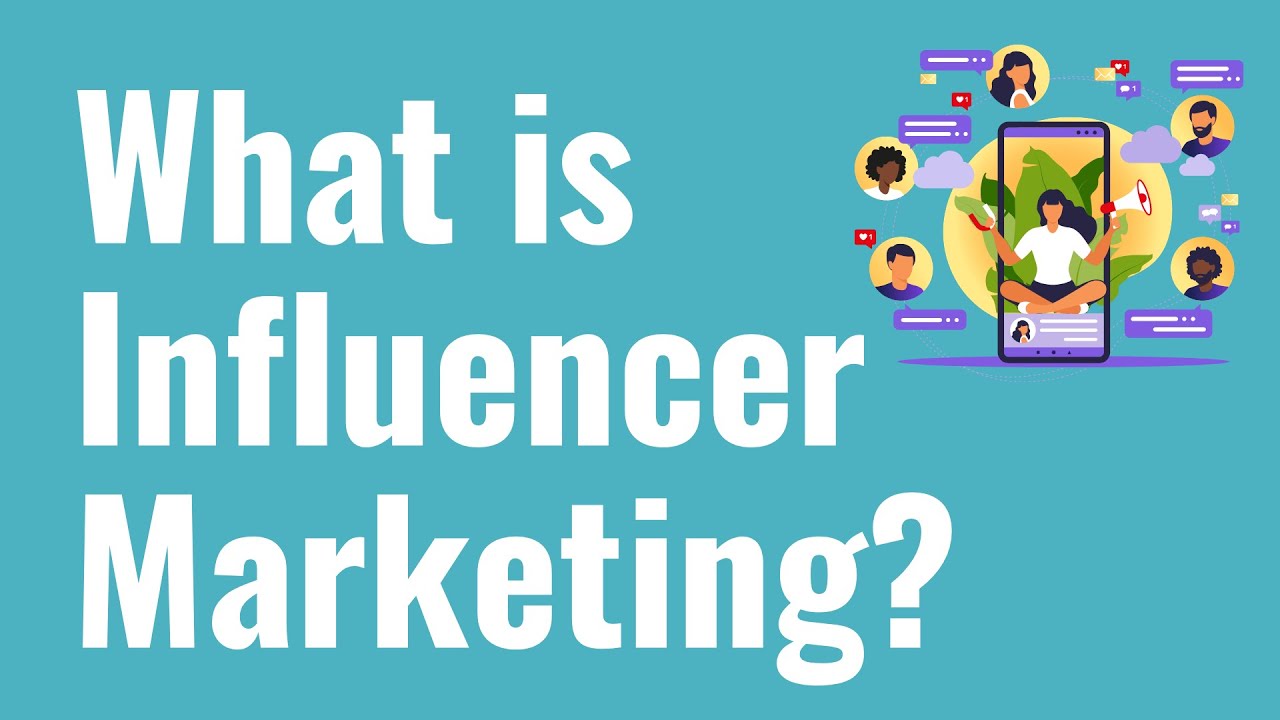In today’s digital landscape, marketing strategies evolve rapidly, and one term that has gained immense prominence is “What is Influencer Marketing.” This innovative approach leverages the power of social media influencers to promote brands and products authentically.
What is Influencer Marketing?

1. Definition of Influencer Marketing
Influencer marketing involves collaborating with individuals who have a substantial online following to endorse and promote products or services. This strategic alliance taps into the influencers’ credibility and sway over their audience to drive brand awareness and engagement.
2. The Rise of Influencer Marketing in the Digital Age
As traditional advertising methods face challenges in connecting with modern consumers, influencer marketing has emerged as a dynamic solution. The authenticity and relatability of influencers resonate more effectively with today’s audience, making it a valuable component of digital branding.
Types of Influencers
In the vast landscape of influencer marketing, influencers can be categorized based on their reach and impact.
1. Mega Influencers
Mega influencers are individuals with millions of followers. They are often celebrities, athletes, or public figures with a massive online presence.
2. Macro Influencers
Macro influencers have a substantial but slightly smaller follower count compared to mega influencers. They may include industry experts, bloggers, or niche celebrities.
3. Micro-Influencers
Micro-influencers have a more localized or niche audience, typically ranging from 1,000 to 100,000 followers. They are known for their engaged and loyal follower base.
4. Nano Influencers
Nano influencers have a smaller but highly engaged audience, often friends, family, or community members. They bring a personal touch to influencer marketing.
Benefits of Influencer Marketing
1. Increased Brand Awareness
Influencers have the power to introduce your brand to a vast audience quickly. The more genuine the endorsement, the more likely followers are to trust and explore the promoted products or services.
2. Authenticity and Trust
Authenticity is a cornerstone of influencer marketing. Followers trust influencers’ opinions, creating a genuine connection that traditional advertising struggles to achieve.
3. Targeted Audience Reach
Collaborating with influencers allows brands to reach specific demographics that align with their target audience, ensuring that marketing efforts are highly focused and relevant.
4. Improved SEO
Influencer collaborations can positively impact your online visibility. Backlinks from influencer content and increased social media mentions contribute to improved search engine rankings.
Challenges
1. Identifying the Right Influencers
Selecting influencers that align with your brand values and target audience requires meticulous research. Choosing the wrong influencer can harm your brand’s reputation.
2. Ensuring Authenticity
Maintaining authenticity is a challenge, especially as influencers may be tempted to promote products solely for financial gain. Authenticity must be a priority for both brands and influencers.
3. Measuring ROI
Quantifying the return on investment in influencer marketing can be complex. Establishing clear objectives and key performance indicators is essential for accurate measurement.
4. Handling Negative Influencer Behavior
Influencers, like any public figures, may face controversies. Brands need a crisis management plan to address any negative impact on their image.
Steps to Implement a Successful Influencer Marketing Campaign
1. Define Objectives
Clearly outline the goals of your influencer marketing campaign, whether it’s increased brand awareness, product launches, or improved engagement.
2. Identify Target Audience
Understanding your target audience helps in selecting influencers who resonate with them, ensuring the campaign’s effectiveness.
3. Choose the Right Influencers
Select influencers based on relevance, authenticity, and their ability to connect with your target audience.
4. Develop a Creative Brief
Provide influencers with a detailed creative brief, outlining campaign objectives, key messages, and any specific guidelines.
5. Track and Analyze Results
Regularly monitor the campaign’s performance, track key metrics, and analyze the impact on brand awareness and sales.
Influencer Marketing Platforms
1. Instagram
With its visual appeal, Instagram is a popular platform for influencers marketing, especially for lifestyle, fashion, and beauty brands.
2. YouTube
YouTube influencers create in-depth content suitable for product reviews, tutorials, and long-form brand storytelling.
3. TikTok
Known for its short-form videos, TikTok is ideal for brands targeting a younger demographic and seeking creative and viral content.
4. Twitter
Twitter influencers often excel in real-time engagement, making it suitable for brands looking for quick and dynamic promotions.
Tips for Building Strong Influencer Relationships
1. Clear Communication
Establish open and transparent communication channels with influencers to ensure everyone is on the same page.
2. Mutual Benefit
Ensure that both the brand and the influencer benefit from the collaboration, fostering long-term partnerships.
3. Long-Term Partnerships
Building long-term relationships with influencers can lead to more authentic and impactful campaigns over time.
The Future of Influencer Marketing
1. Emerging Trends
Explore the latest trends in influencer marketing, such as virtual influencers, augmented reality collaborations, and interactive content.
2. Technological Advancements
Discover how technology, including AI and data analytics, is shaping the future of influencer marketing, offering new possibilities and insights.
Conclusion
In conclusion, what is influencer marketing has become a cornerstone of modern digital branding. Its ability to connect with audiences authentically, drive brand awareness, and impact SEO makes it a valuable strategy for businesses of all sizes. As the digital landscape continues to evolve, influencer marketing presents endless opportunities for brands to engage with their target audience in meaningful ways.
For a personalized demonstration of how influencer marketing can elevate your brand, request a demo from AIM Technologies!
FAQs
How do I choose the right influencers for my brand?
- Consider your target audience, brand values, and the influencer’s authenticity and engagement.
What metrics should I track to measure the success of an influencer’s marketing campaign?
- Track metrics such as reach, engagement, conversion rates, and overall impact on brand perception.
Are nano influencers effective for small businesses?
- Yes, nano influencers can be highly effective for small businesses, providing a personal touch and genuine connections.
How can brands address negative publicity from influencer controversies?
- Having a crisis management plan in place is crucial. Address the issue transparently and take corrective actions as needed.
What are the key trends shaping the future of influencers marketing?
- Emerging trends include virtual influencers, augmented reality collaborations, and the integration of interactive content.




